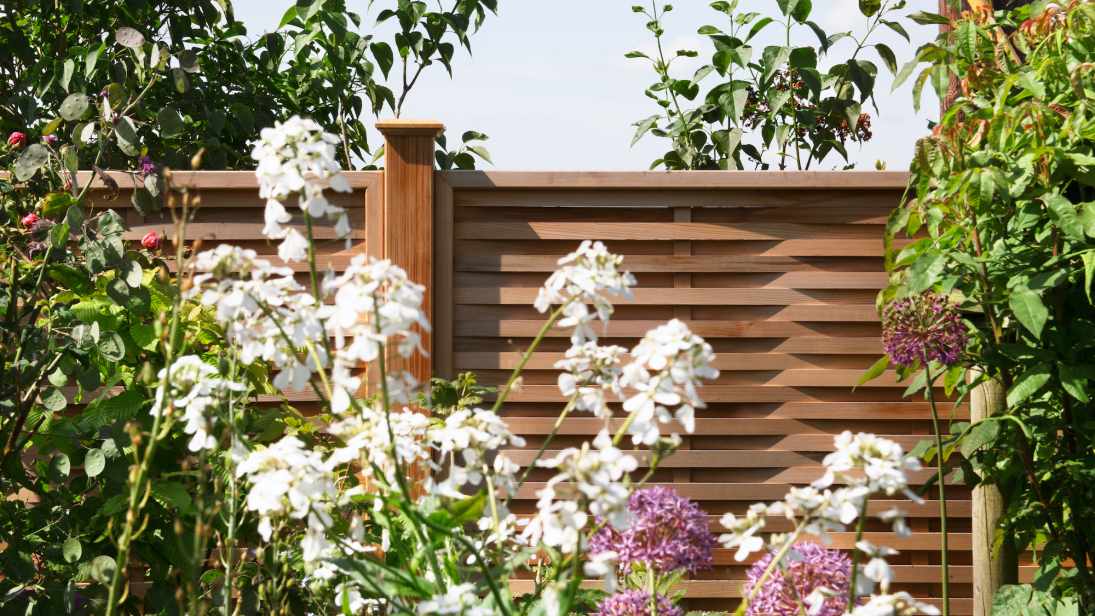All Categories
Featured

Among the most preferred options, wood, vinyl, and light weight aluminum each offer distinct advantages and disadvantages. Right here's a failure of the pros and disadvantages of these three common secure fencing products.
Timber Fence. Timber secure fencing has actually been a timeless option for homeowners because of its natural charm and convenience.
Pros:. Aesthetic Appeal: Wood offers a classic and warm look that enhances a selection of building styles. Adjustable: It can be painted, tarnished, or cut into special layouts to fit individual preferences. Affordable: Originally, timber secure fencing can be an economical alternative contrasted to other products. Eco-Friendly: Wood is a sustainable source and can be sustainably sourced. Disadvantages:. High Upkeep: Wood calls for normal sealing, discoloration, or paint to avoid rot, insect damage, and weathering. Toughness Concerns: Without proper treatment, timber can warp, crack, or degeneration with time, specifically in locations with high moisture. Shorter Life-span: A wood fence usually lasts 10-20 years, relying on the sort of timber and degree of maintenance. Wood is optimal for those that value a traditional look and agree to commit to its maintenance.
Vinyl Fencing. Plastic is a modern, low-maintenance fence alternative that has expanded in appeal in the last few years.

Pros:. Reduced Upkeep: Vinyl does not call for painting, discoloration, or sealing and can be conveniently cleansed with soap and water. Climate Resistant: It stands up to extreme climate conditions without deteriorating, rusting, or warping. Durable: Vinyl fencings can last 20-30 years with marginal maintenance. Selection of Styles: Readily available in several shades, layouts, and appearances, some plastic options simulate the appearance of timber. Disadvantages:. Higher Upfront Cost: Plastic secure fencing can be much more pricey initially contrasted to wood. Brittleness in Cold Climate: In extreme cool, plastic might fracture or end up being brittle. Limited Fixes: Individual panels can be difficult to change, requiring careful matching to the existing fencing. Vinyl is ideal matched for home owners looking for a long lasting, low-maintenance solution with modern-day looks.
Aluminum Fencing. Light weight aluminum fence is a lightweight and sturdy alternative, usually picked for its contemporary look and convenience.
Pros:. Rust-Resistant: Light weight aluminum doesn't rust, making it an outstanding choice for wet or moist environments. Reduced Upkeep: Requires marginal maintenance and is simple to tidy. Long lasting: While lightweight, aluminum is solid sufficient to hold up against lots of environmental problems. Long Lifespan: Can last a number of years without considerable wear or deterioration. Range of Styles: Offers a sleek and sophisticated look, frequently used for ornamental or decorative purposes. Cons:. Higher Expense: The first investment for light weight aluminum secure fencing is greater than wood or vinyl. Much Less Personal privacy: Light weight aluminum fencings are typically created with open pickets, making them less efficient for personal privacy. At risk to Dents: Although resilient, light weight aluminum can be nicked by strong impacts. Aluminum is perfect for those seeking a stylish, lasting alternative that needs marginal care.
Making the Right Selection. Each fence product-- vinyl, aluminum, and timber-- provides distinct advantages and drawbacks. Your decision ought to depend on your certain top priorities, such as budget, maintenance choices, climate, and visual goals:
If you like a traditional appearance and don't mind normal maintenance,Choose wood. Select plastic if you desire a low-maintenance, weather-resistant fencing with modern allure. Select light weight aluminum if you focus on sturdiness, rust resistance, and a streamlined design. By considering these cons and pros, you can pick a secure fencing material that improves your residential or commercial property while fulfilling your useful requirements.
Latest Posts
Explore Cost-Effective Auto Repairs with Montclare’s Limited-Time Service Specials
Published May 21, 25
1 min read
Join WyHy FCU – Essential Perks for Your Financial Future
Published May 21, 25
1 min read
Explore the Storied Past of Deauville Inn: From Speakeasy to Jersey Shore Icon
Published May 19, 25
2 min read
More
Latest Posts
Explore Cost-Effective Auto Repairs with Montclare’s Limited-Time Service Specials
Published May 21, 25
1 min read
Join WyHy FCU – Essential Perks for Your Financial Future
Published May 21, 25
1 min read
Explore the Storied Past of Deauville Inn: From Speakeasy to Jersey Shore Icon
Published May 19, 25
2 min read